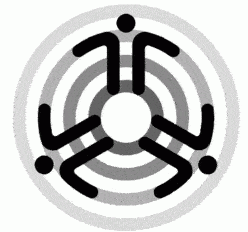The Society of Computer Users (SCU) was founded in 1990. At the time of its creation, personal computers (whether Apple Macintoshes, IBM machines or IBM-compatible machines) were quite expensive, online communications were more dream than reality (there was no Internet access in Trinidad and Tobago) and software could only be had at a premium price. The SCU had an ambitious mission: to be a user-friendly outlet in the distribution of computer related information to the general public.
One of its aims was to promote the shareware concept: the now famous “try before you buy” approach to marketing computer software; This marketing method not only enabled computer users to obtain additional software for their machines but more importantly, software at greatly reduced prices! (at the time the average cost of shareware was between US$5 to US$20).
Contents
The SCU as a pioneer
The SCU was not only about distribution of computer related information, it was also a pioneer in the local information technology field! Its major accomplishments were:
- Compufest:A three day exhibition where information technology vendors demonstrated their various computer hardware/software and services to the public. Today such exhibition-style events or trade shows are quite common, but in the early 1990’s no one in the public or private sector had ever attempted such a grand display of computer related material in one place! Compufest events were held at the Holiday Inn conference room in 1991, 1992 and 1993.
- The establishment of the Infoline BBS: As previously stated, in the early 1990’s online communications in Trinidad and Tobago were more dream than reality however, modem prices were at the point where hobbyists could finally purchase one for home use. The time was right for local computer users to enjoy the benefits of electronic communications. To this end, the SCU, with financial and technical help from IBM World Trade Corporation, Memory Bank Computers, Republic Bank Limited and the Trinidad Publishing Company Limited, established the Infoline BBS.
The original system for Infoline consisted of:
- an IBM PS/2 Model 70 (386DX 25Mhz machine)
- 2 MB RAM
- a 120 MB hard drive
- two 2400bps internal Hayes modems
The BBS software chosen for this pioneering effort was The Major BBS Version 4.x, a robust, DOS-based commercial package. This 24-hour a day service was officially placed online on Friday 19th April, 1991. The original system operators (or SYSOPS) were: Harold Hendrie, Wayne Sheppard and Joseph Wharwood.
The first upgrade occured in 1995 when an external Cardinal 14,400bps modem was purchased to replace one of the slower 2400bps modems. The PS/2 system served until late 1996 when it had to be placed offline due to lack of hard drive space for storage of new files. The second upgrade was implemented at this time: the original PS/2 system was replaced with a more modern system that contained: a Pentium chip; 16 MB RAM; two hard drives: a 730MB unit and a 530 MB unit; The Major BBS software was upgraded to Version 6.
An external 28,800bps modem was installed to replace the remaining 2400bps modem (as well as provide faster download speeds for financial members of the Society) and the 14,400bps external modem was kept in place as the modem to service the general public(non-financial members/trial users). Soon after the upgrade, the Society was able to obtain another external 28,800bps modem and that was used to replace the 14,400bps external modem.
The Pentium-based system was in service until the third week of January 2000. Infoline was the longest running non-commercial online system to ever provide services to the computer users of Trinidad and Tobago.
History
Regular meetings were held between 1991 and 1994 as the SCU sought to achive its stated mission of distributing computer related information. However, by late 1994/early 1995, some of the founding members had withdrawn their services due to work/family related committments or migration. The surge in membership slowed down as initial enthusiasm for computers diminished over those three years due to the high cost of both computer software and hardware. Despite these setbacks, members still produced informative meetings on a variety of topics such as: Artifical Intelligence (AI), CD-ROMs and CD-ROM drives, Windows 95 and OS/2 Warp v3.
In late 1995, enthusiasm was once again re-kindled due to two main factors: Internet access was finally a reality as Telecommunication Services of Trinidad and Tobago (TSTT) connected the nation to the rest of the world and the cost of computer software and hardware began to fall. Users could finally get more powerfull systems at cheaper prices.
Unfortunately, support from both existing and potential members was reduced to a fraction of its former self as they “answered” the call of the Internet. The fragmentation of the SCU management was too severe and it lacked ideas to remain viable in the face of competition from the Internet.
Members voted to dissolve the SCU at the Annual General Meeting in early 1996.
Epilogue
What happened after the official dissolution?
- The SCU ceased to exist.
- All memberships became null and void.
- Several former members volunteered their time and personal money to keep the idea of a local computer club alive (under a different name of course).
What happened to Infoline?
- The Infoline Bulletin Board System (BBS) was kept in use between 1996 and 2000 and made available to both former members and the general public.
- The Pentium-based system was in service until the third week of January 2000 when it was placed offline due to a hard drive crash. The crash was not related to the Y2K bug!
- Infoline was taken offline for repairs and a descision was made to upgrade the system from a DOS-based BBS package to a system running as a Linux-based intranet server.
- The project took longer than expected and during that time, sponsorship for the two telephone lines that had connected the BBS to the outside world, was withdrawn.
- Officially, Infoline, the Bulletin Board System (BBS), no longer exists.
The Society of Computer Users (SCU), 1990 – 1996.
The Infoline Bulletin Board System (BBS), 1991 – 2000.
Compufest (computer and information technology exhibition), 1991 – 1993.
Help wanted
We would like to obtain further information about the SCU years (1990 to 1996) for this page. If you were a former member, have printed material, photos, interesting anecdotes, general memorabilia, etc please contact us at: [email protected] .

